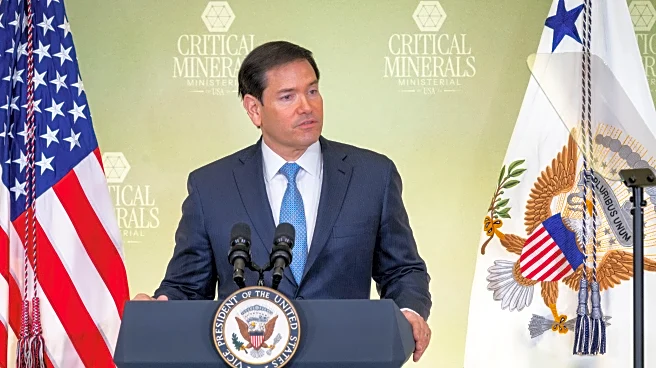What's Happening?
The U.S. government is on the brink of a shutdown following an unproductive meeting between lawmakers and President Trump. If the shutdown occurs, non-essential government functions will be curtailed, affecting various departments including the Bureau of Labor Statistics. This office is crucial for providing jobs and inflation reports that the Federal Reserve relies on for making interest rate decisions. The potential delay in data could complicate the Federal Reserve's ability to navigate economic policy effectively. Despite these uncertainties, major U.S. stock indexes saw gains, driven by Nvidia's recovery and Electronic Arts' privatization news.
Why It's Important?
A government shutdown could have significant implications for the U.S. economy, particularly in terms of monetary policy. The Federal Reserve's ability to make informed decisions on interest rates could be hindered by the lack of timely economic data. This uncertainty may affect investor confidence and market stability. Additionally, the shutdown could disrupt various government services, impacting sectors like defense and healthcare, although essential services would remain operational. The situation underscores the importance of political stability in maintaining economic health.
What's Next?
If the shutdown occurs, stakeholders including political leaders and economic analysts will closely monitor its duration and impact. The Federal Reserve may need to adjust its strategies in the absence of reliable data, potentially affecting interest rate policies. Businesses and investors will likely seek clarity on the government's ability to resolve the impasse, which could influence market movements and economic forecasts.











